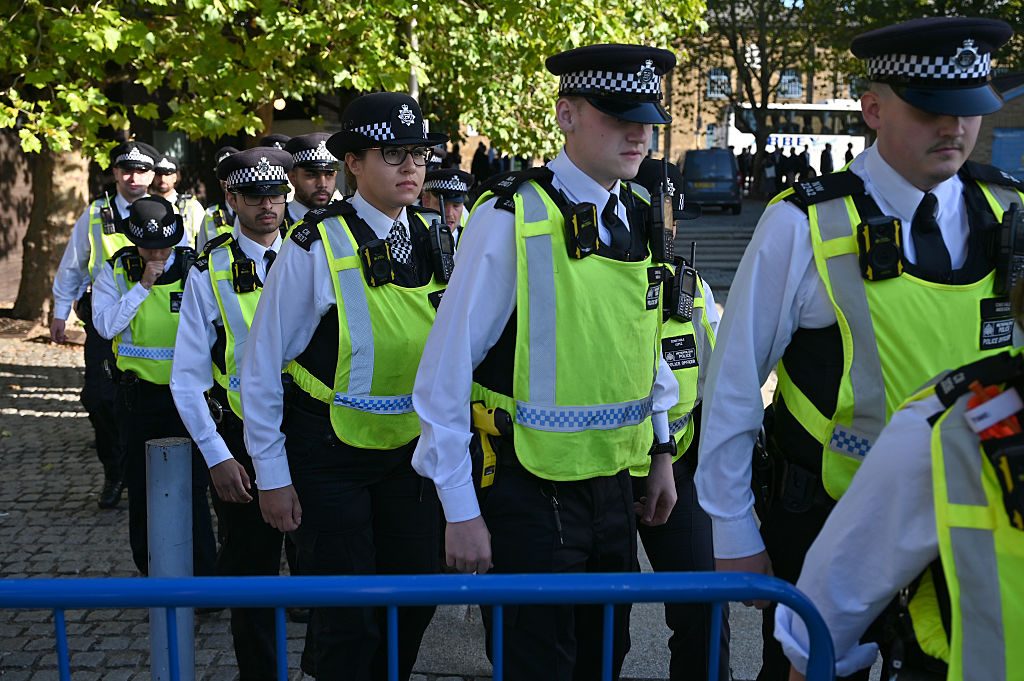At long last, senior police officers want to scrap “non-crime hate incidents”. The Metropolitan Police Commissioner, Sir Mark Rowley, says he agrees with His Majesty’s Inspector of Constabulary, Sir Andy Cooke, that the police should stop recording them.
“I think we need to separate the offensive from the criminal,” Cooke said. “I’m a firm believer that non-crime hate incidents are no longer required,” he added. What took him so long? The clue is surely in the title, which makes it clear that such incidents do not meet the criminal threshold. Many human emotions are unpleasant, but it is not the job of the police to manage them — especially when definitions are so vague. The meaning of the word “hate” has expanded so much in recent years as to become meaningless. It now appears to encompass disagreement, sarcasm and even mild opposition to someone’s cherished but barmy ideas.
The notion that the police should be involved in this is obviously foolish, having the capacity to divert resources from the investigation of actual crimes. And is it really true that the police have “limited” levels of discretion, as Rowley told the Today programme? Serious crimes such as rape and domestic violence have terrible prosecution rates, while low-level crime such as shoplifting often goes unreported as people know the police won’t investigate it. There’s an obvious danger that recording NCHIs has become the easy option.
They have also opened the police up to accusations of political bias. Edinburgh appears to be a seething hotbed of hate, with 391 NCHIs recorded in 2022/23, yet there is reason to think many of these cases were trivial or vexatious. The Conservative MSP Murdo Fraser was outraged to discover that an NCHI had been recorded against him after he suggested that identifying as non-binary “is as valid as choosing to identify as a cat”.
Trans activists long ago weaponised NCHIs, turning them into a tool to harass gender-critical women. Officers appear to have plenty of discretion to avoid acting when the complaints come from feminists, however. In Edinburgh last week, officers allowed a well-known trans activist to use a sound system to drown out a meeting calling on the Scottish government to implement the Supreme Court decision on the meaning of sex. What’s more, they are now investigating a complaint from the activist that Susan Smith, co-director of gender-critical activist group For Women Scotland, which brought the court case, damaged his rainbow umbrella.
But the chilling and indeed slanderous effect of NCHIs extends far beyond sex and gender. The Daily Telegraph columnist Allison Pearson was visited at home by two officers from Essex Police, who wanted to interview her about allegedly “stirring up racial hatred” in a year-old social media post. It took the CPS only four days to conclude there were no grounds for prosecution. Essex Police denied telling Pearson they were investigating an NCHI, but a review by the National Police Chiefs’ Council came to the baffling conclusion that one should have been recorded.
Ultimately, NCHIs are a sneaky way of denouncing individuals and tarnishing their name with a “non-criminal” record without their knowledge. This is not the kind of state intervention usually allowed in free democratic societies. Getting rid of NCHIs is a necessary first step in restoring trust in the police, but the problem of captured politicised forces urgently needs to be addressed.











Join the discussion
Join like minded readers that support our journalism by becoming a paid subscriber
To join the discussion in the comments, become a paid subscriber.
Join like minded readers that support our journalism, read unlimited articles and enjoy other subscriber-only benefits.
Subscribe